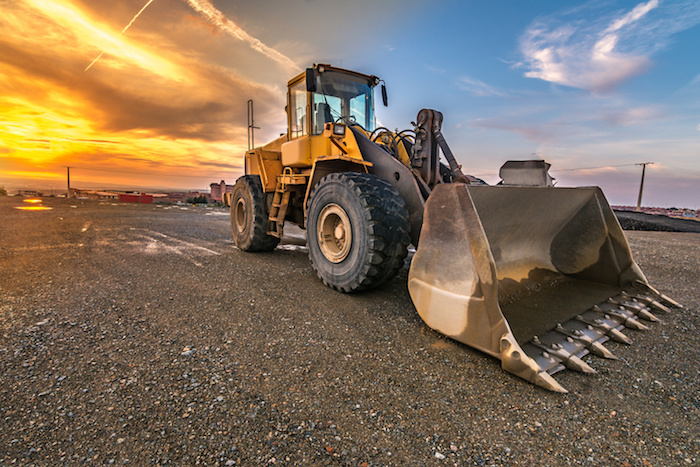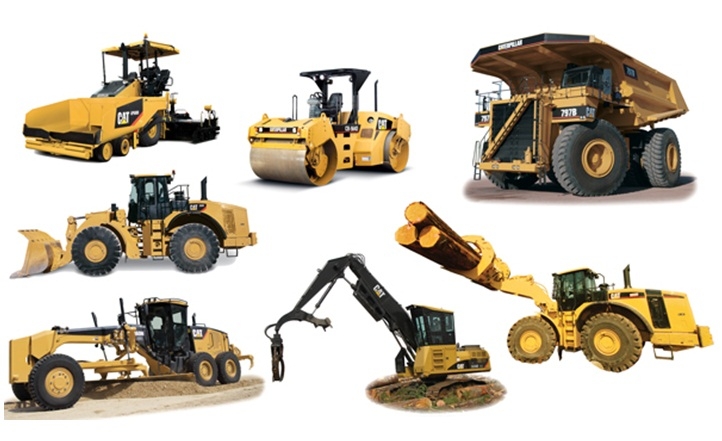Equipment Rental Company in Tuscaloosa AL: Your Trusted Source for Machinery
Equipment Rental Company in Tuscaloosa AL: Your Trusted Source for Machinery
Blog Article
Checking Out the Financial Benefits of Leasing Construction Devices Contrasted to Owning It Long-Term
The choice in between owning and leasing building and construction equipment is critical for economic management in the market. Renting out deals instant cost financial savings and operational versatility, enabling companies to assign sources extra efficiently. In contrast, possession features significant long-term financial commitments, including maintenance and depreciation. As specialists consider these options, the influence on cash flow, project timelines, and innovation gain access to comes to be increasingly considerable. Comprehending these nuances is essential, especially when considering how they align with specific project needs and financial techniques. What elements should be prioritized to guarantee ideal decision-making in this complicated landscape?

Cost Comparison: Leasing Vs. Possessing
When reviewing the economic ramifications of owning versus renting construction devices, a comprehensive cost contrast is necessary for making educated choices. The option between having and leasing can considerably affect a business's bottom line, and understanding the linked expenses is important.
Renting construction tools usually includes lower upfront prices, enabling businesses to allocate resources to various other functional requirements. Rental agreements usually include flexible terms, making it possible for business to gain access to progressed machinery without lasting commitments. This flexibility can be specifically helpful for temporary jobs or changing workloads. Nevertheless, rental prices can build up with time, potentially going beyond the expense of possession if equipment is required for an extended duration.
Conversely, having building and construction equipment requires a considerable first investment, in addition to continuous costs such as insurance policy, funding, and devaluation. While possession can lead to long-term cost savings, it likewise locks up resources and might not supply the same degree of flexibility as leasing. In addition, possessing tools demands a dedication to its utilization, which may not always straighten with job demands.
Eventually, the decision to rent or have ought to be based on a detailed analysis of particular project needs, financial capacity, and long-lasting critical objectives.

Upkeep Responsibilities and expenses
The option between possessing and renting construction equipment not only involves financial considerations but also encompasses ongoing maintenance costs and obligations. Having equipment requires a significant commitment to its maintenance, that includes regular evaluations, repair services, and possible upgrades. These duties can promptly gather, bring about unforeseen costs that can strain a spending plan.
On the other hand, when renting out devices, maintenance is generally the responsibility of the rental firm. This plan allows contractors to prevent the economic problem connected with wear and tear, along with the logistical difficulties of scheduling fixings. Rental contracts frequently consist of provisions for upkeep, indicating that professionals can focus on finishing projects instead than stressing over equipment problem.
Moreover, the varied variety of equipment readily available for lease enables firms to choose the current designs with innovative modern technology, which can boost effectiveness and productivity - scissor lift rental in Tuscaloosa Al. By going with rentals, services can avoid the long-term responsibility of devices devaluation and the associated upkeep headaches. Eventually, evaluating maintenance expenditures and responsibilities is crucial for making an educated decision regarding whether to possess or lease construction devices, significantly influencing total task expenses and functional effectiveness

Depreciation Influence On Possession

A considerable variable to consider in the decision to possess construction devices is the influence of depreciation on total ownership prices. Devaluation represents the decrease in worth of the equipment with time, influenced by aspects such as use, deterioration, and advancements in technology. As devices ages, its market price diminishes, which can substantially influence the owner's monetary placement when it comes time to trade the tools or market.
For building business, this depreciation can translate to substantial losses if the equipment is not utilized to its fullest possibility or if it lapses. Owners need to represent depreciation in their economic estimates, which can cause higher overall prices contrasted to renting. Additionally, the tax obligation effects of devaluation can be complex; while it might give some tax obligation benefits, these are often countered by the truth of decreased resale worth.
Eventually, the worry of devaluation highlights the value of understanding the lasting monetary dedication associated with owning building and construction devices. Firms need to thoroughly review just how usually they will utilize the devices and the potential financial influence of devaluation to make an enlightened decision about ownership versus renting.
Monetary Adaptability of Leasing
Renting out building tools offers considerable economic versatility, allowing firms to assign sources more effectively. This flexibility is particularly critical in a market defined by fluctuating job demands and varying building hoist work. By deciding to rent, services can avoid the considerable resources outlay required for acquiring equipment, maintaining capital for various other operational needs.
Additionally, leasing i loved this devices makes it possible for companies to tailor their equipment options to certain task needs without the lasting commitment connected with ownership. This implies that organizations can conveniently scale their tools inventory up or down based on current and anticipated project requirements. As a result, this versatility minimizes the danger of over-investment in equipment that might end up being underutilized or outdated gradually.
An additional economic benefit of leasing is the capacity for tax advantages. Rental repayments are usually taken into consideration general expenses, enabling prompt tax obligation reductions, unlike depreciation on owned equipment, which is spread out over a number of years. scissor lift rental in Tuscaloosa Al. This instant cost recognition can even more improve a company's cash money placement
Long-Term Job Considerations
When reviewing the long-lasting demands of a building organization, the decision in between possessing and leasing tools becomes a lot more intricate. For projects with prolonged timelines, acquiring equipment may appear advantageous due to the capacity for reduced overall expenses.
The building and construction market is advancing swiftly, with brand-new devices offering enhanced efficiency and safety features. This adaptability is specifically helpful for companies that manage diverse projects calling for various types of equipment.
Furthermore, economic security plays an important function. Owning tools frequently involves significant resources financial investment and depreciation concerns, while renting out enables vibration damping pads for heavy machinery for more foreseeable budgeting and money flow. Inevitably, the option between possessing and leasing ought to be straightened with the critical purposes of the building business, considering both anticipated and current project demands.
Conclusion
In verdict, renting out construction devices uses significant financial advantages over long-term possession. Eventually, the choice to rent out instead than own aligns with the vibrant nature of building tasks, permitting for adaptability and access to the latest equipment without the economic worries linked with possession.
As tools ages, its market worth diminishes, which can substantially impact the proprietor's monetary setting when it comes time to offer or trade the devices.
Renting out building and construction tools supplies substantial economic adaptability, permitting firms to allocate resources much more efficiently.Additionally, leasing devices allows business to tailor their tools selections to certain job demands without the long-term commitment linked with possession.In final thought, renting construction devices offers significant financial advantages over long-term possession. Eventually, the decision to rent instead than own aligns with the vibrant nature of building and construction jobs, allowing for adaptability and access to the most recent devices without the financial worries connected with possession.
Report this page